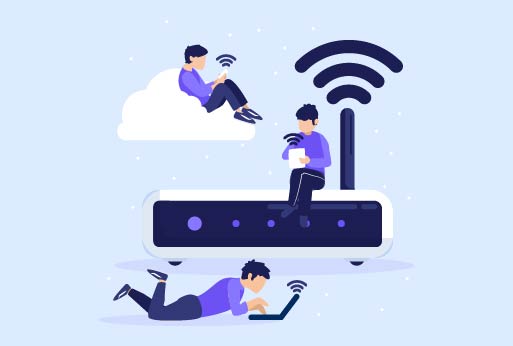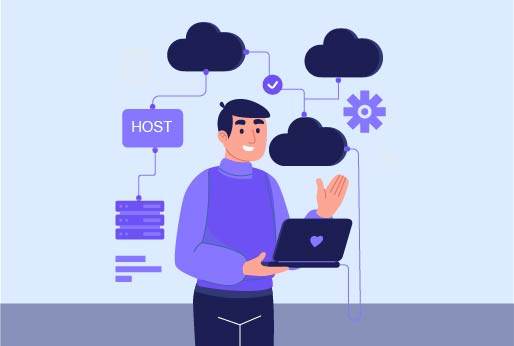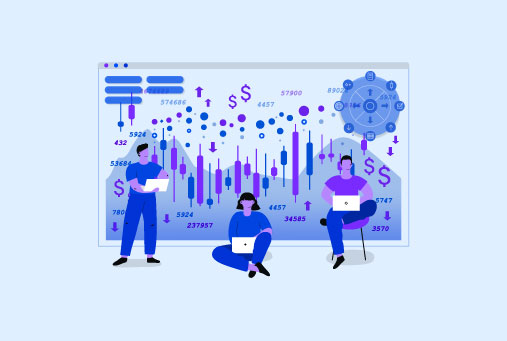
Why And When ISP Throttling Happens – Using VPNs To Optimize Internet Speed
With 79% of US adults having used home broadband in 2024 and network technology being more advanced than ever before, people still find they have issues with internet connectivity. And since almost half of the world has access to a 5G network, many users might assume their internet service provider is purposefully limiting their bandwidth. Even though ISP throttling is a real issue, it’s not the only reason for slow speeds. Other causes might be network congestion, website traffic surges, or server overloads.
ISP throttling refers to the intentional slowdown of traffic to manage bandwidth usage or to control congestion. This is common during peak times or in areas where connectivity is low. Some ISPs may even throttle traffic from specific services so that customers can upgrade to high-tier plans.
To solve this, a VPN can be useful since it encrypts internet traffic and reroutes it through different servers which makes it harder for ISPs to track and throttle specific activities.
In this blog, we are going to look at why and when ISP throttling happens and how VPNs help with optimizing internet speed.
The Difference With Network Congestion
As mentioned above, many users think that slow speeds mean that their ISP is throttling their connection. But in reality, it can be due to the high demand on certain websites due to peak usage hours.
One example of this is online video poker. A live video streaming game like this relies on continuous data exchange, which means that every bet, deal, and hand calculation is processed easily which requires a stable connection. Moreover, many modern platforms that offer poker or slots games may use high-definition graphics and animations that can consume bandwidth, especially when there are thousands of people at the same time. Some advanced versions have live dealer technology that requires a strong internet connection to maintain smooth video playback and interaction. The backend of online video poker sites includes random number generators (RNGs) and encryption protocols to ensure fair play. This also requires constant server communication that can add to traffic demands.
This scenario is caused by network congestion within the website rather than ISP throttling. This can cause players to lag or experience buffering during live dealer games or even temporary disconnections.
A VPN prevents network congestion for gaming platforms in this context by providing a stable connection to servers that reduce packet loss and bypass local network congestion for smoother gameplay.
How VPNs Can Prevent ISP Throttling
To prevent ISP throttling for certain activities, a VPN encrypts your connection. It can mask your online activity to prevent your ISP from seeing what you are doing. Since ISPs track online activities through IP addresses, a VPN hides this and assigns you different IPs from its server pool which makes it harder to track.
Moreover, it can reroute traffic through optimized servers that avoid ISP-imposed slowdowns on specific services like Netflix, Twitch, or gaming platforms. These benefits go on to show why 93% of organizations use a VPN for stable connections.
Social Media Outage Can Be The Result Of Both Throttling And Congestion
Social media outages can be caused by both ISP throttling and congestion, as seen with platforms like Telegram. This is because the network administrators or service providers may purposefully slow down traffic to prevent access in certain regions or times.
Telegram is one of the most popular apps for gamers, students and professionals with millions of users relying on it for various purposes such as news, business updates, community discussions, and large-scale broadcasts which makes it one of the most demanded platforms in the world. In fact, they have around 1 billion active users and are set to go even further. When these many people engage in channels, live streams, and high-volume data exchanges at the same time, it increases the server load which leads to slow message delivery or temporary disconnections.
Moreover, there are certain Telegram-specific features such as cloud storage for media, large group interactions, and encrypted file-sharing that all contribute to network congestion due to high bandwidth requirements. In any case, a VPN can improve connectivity by rerouting the traffic through less congested paths.
When Should You Use A VPN To Improve Speed?
The majority of people use VPN not for increasing the speed of browsing or streaming, as the number is roughly 26% while 43% of them use a VPN for security, and 12% for privacy. If you experience frequent slowdowns, you should consider using a VPN when:
- Streaming high-quality video content
- Playing online games that require low-latency
- Accessing region-restricted content where the ISPs may impose artificial slowdowns
A VPN may slightly reduce speeds since there is a lot of encryption overhead, but a high-quality VPN with good servers and fast routing can improve your performance even with these issues.
Can VPNs Keep Internet Speeds Consistent?
A slow connection may be caused by ISP throttling or network congestion, but the solution for them remains the same. A VPN is a practical solution for both cases since it acts as a privacy and connection tool to help users maintain faster and more reliable connections.





